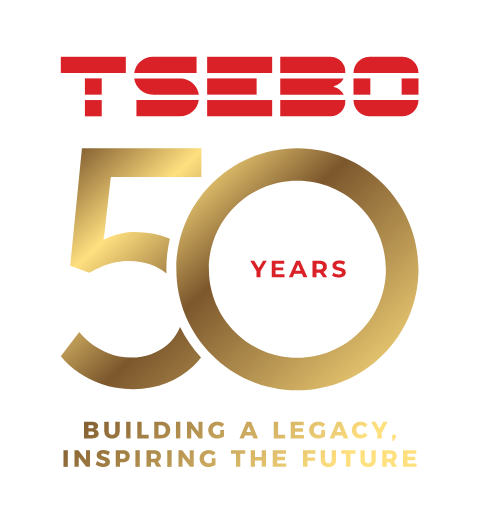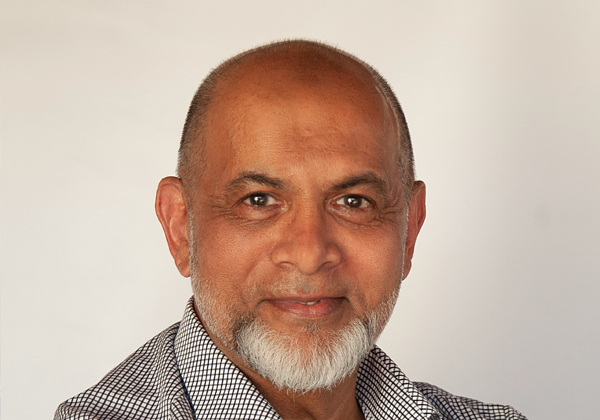Having served Tsebo for 35 years, Hamid Khan is not only one of the Group’s longest-standing employees but has also contributed significantly to Tsebo’s expansion into Africa and beyond. The success of which he attributes to service excellence, local partnerships, and care for people and communities.
“We did well to offer clients a full basket of workplace management solutions. We took time to establish what they wanted and presented a solution where we could provide skills they didn’t have, thereby enabling the clients to ‘stick to the knitting’ and outsource non-core activities to us. In many cases, we had to work in remote locations, be creative, and find solutions to how we could provide services in these hard-to-reach areas.”
“Importantly, we forged partnership agreements with local partners in those areas who could unlock the red tape for us because they were already established, understood the landscape and could fast-track things we couldn’t from South Africa.”
Where it all began
Like many Catering Division employees, Hamid began his career in the hotel sector at a prominent KwaZulu-Natal beachfront hotel before being invited to interview for a position at Fedics.
“Hotel life was great, but the hours were difficult. You never worked a straight shift and always had a day off in the middle of the week, never the weekend.”
“I was approached by a hotel colleague Vivienne Podmore – wife of the late Nick Podmore, the then MD for Fedics KwaZulu-Natal – and invited for an interview. I was excited by what I was offered, more particularly in terms of the regular working hours. When I joined Fedics, I was amazed to find so many of my former hotel industry colleagues already there.”
Climbing the corporate ladder
Hamid started at Fedics on 1 August 1985 as a Catering Manager for a management-fee contract in the south of Durban. Compared to the fast pace of hotel life, the work was relatively easy, but it wasn’t long before Hamid’s potential was recognised and Fedics began sending more challenging positions his way.
“I was there for a year before being transferred to a full-risk contract in 1986, which required a completely different mindset because you have to ensure that you run the business efficiently while achieving forecasted results. The contract was running at a loss, and I was approached to fix it. I did that successfully for two years; then, in 1988, I was promoted to District Supervisor overseeing six contracts.”
From there, Hamid was promoted to District Manager with 10 contracts, from 1989 to 1993; Operations Manager from 1993 to 2001; Operations Director for Cape Town from 2002 to 2004; during which period he was promoted to Managing Director in Cape Town. He stayed in the latter position from 2004 to 2012 and became a Board Member during that time.
Growth and expansion – looking after 47 remote oil rigs onshore & offshore

In 2012, Hamid opted to move to Saudi Arabia to take up a position as Country General Manager for Karam Fedics Services in Saudi Arabia and Bahrain, and manage the Middle East division for Tsebo. The decision was both professional and personal. On the one hand, he welcomed the challenge of providing a professional service in extremely remote locations. On the other, the move allowed him to accomplish a significant personal goal.
“From my side, my interest was that Saudi is a Muslim country and part of our religious beliefs is that one has to undertake a pilgrimage to Mecca at least once in your lifetime. So, for me, that worked out perfectly because I could do what I do for Tsebo, and at the same time, I could fulfil my spiritual path. Saudi was a highlight for me because I was able not just to grow the business significantly, but I also experienced tremendous spiritual growth.”
“We sat down with our clients to first understand their niche needs. We took a holistic approach to the solutions we provided and utilised the network of our Saudi partners to achieve our business objectives. It wasn’t just catering as we offered our clients a holistic solution with our bouquet of services.”
Tsebo formed partnerships and joint ventures with local businesses to unlock supply chains and provide superior service. Saudi Arabia is very different from most developing countries. “If we didn’t have the local partners, we would have been adrift – they know how the country runs and what boxes to tick to assist you in achieving your objectives.”
“We provided integrated workplace management solutions for 18 offshore oil rigs and 29 land rigs. The services we provided were similar to what we provide in South Africa, the only difference being the logistics in getting everything that was needed to the offshore rigs on time. It’s what we normally do here in South Africa, but in adverse conditions, so we just had to manage our resources, people, and logistics to provide a high level of service on time, every time. We created a central warehouse and distributed to all our sites – in that way, we could manage the supply chain and control where the supplies went while benefitting from the economies of scale through increased purchasing power.”
“For onshore sites, we could use trucks, but for offshore, the logistics had to be spot on because you were given a schedule to get all your goods in refrigerated food containers to the designated port at a certain time. If we were late, you would miss the boat, and your provisions wouldn’t go out to the offshore rig for another two weeks. This meant that you had to have adequate provisions available on the rig to continue service if the delivery is delayed because of logistics or in case of bad weather delaying the departure from port to the rig.
“We had to ensure that all our employees were well taken care of at our base camp during shore leave. We made this a ‘home-from-home’ experience, as most of them were on lengthy contracts and went home on leave only after two or three years, depending on the conditions of their employment contract. As for the rig employees, they were stuck in the middle of the ocean or desert, so we had to ensure that they had the best of food – steaks, seafood, whatever they wanted because that’s the only luxury they could get.”
Leaving a legacy
In true Tsebo spirit, ongoing training and people development were at the forefront of operations in Saudi. This included upskilling the local partners and grooming them to the point where they would eventually take over the business.
“We had a fully dedicated training department ensuring that our people were trained at all times. Furthermore, we couldn’t just send people onto a rig; there was a whole bunch of training and certification to meet stringent Aramco Health & Safety requirements. I’m so grateful that we didn’t have any casualties in our rigs in the six years I was there.
“It was a very fruitful 11-year stint for Tsebo in Saudi Arabia. By the time we exited the country, we had upskilled and empowered our local partners to the point that we could hand over the company to them.”
From Saudi, Hamid returned to South Africa before relocating to Zimbabwe to assist in integrating Tsebo Servcor (a new acquisition) into Tsebo; our local partners once again helped via their networks to ensure success for Tsebo.“The local partners were well connected within the mining sector, which was a significant part of our revenue stream, and this, together with our excellent service delivery, enabled us to retain substantial business.”
50 years of excellence
Hamid believes that Tsebo’s ability to grow and thrive even through adverse conditions is largely because it has always “done something different”.
“When I joined in 1985, Tsebo was already an equal opportunity employer long before anyone else. Fedics brought in-house branding to the industry and a high-end, restaurant-type look and feel. Others are doing it now, but we already did this in those early years. Tsebo was always way ahead of its time, has always been one step ahead and first to market with many initiatives.
“Congratulations to the team that has brought Tsebo to where it is now, 50 years down the line. Tsebo has seen extraordinary growth and achievement over the past five decades – through organic growth, mergers and acquisitions, people development, capacity building, and innovation – I wish the team well for the next 50 years.”







